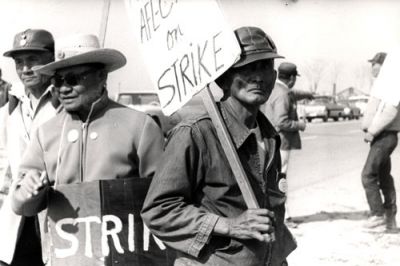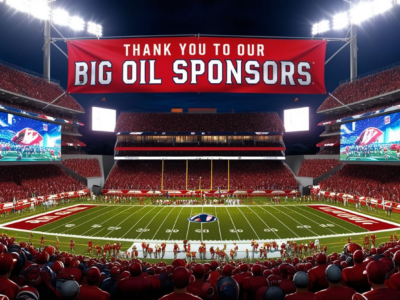Volkswagen
What Does That Name Mean Now?
 Stunning. But not shocking. That was my reaction to the massive fraud admitted by Volkswagen recently. Stunning in its sheer size and reach; half a million cars in the United States and another ten and a half million globally. Yet not very surprising given the fact that use of mechanical and digital cheat devices has been something of a proud tradition in the automotive industry since the advent of emissions controls. But 11 million cars? And in the context of a marketing strategy that boasted about the environmental virtues of clean diesel? That is the stunner.
Stunning. But not shocking. That was my reaction to the massive fraud admitted by Volkswagen recently. Stunning in its sheer size and reach; half a million cars in the United States and another ten and a half million globally. Yet not very surprising given the fact that use of mechanical and digital cheat devices has been something of a proud tradition in the automotive industry since the advent of emissions controls. But 11 million cars? And in the context of a marketing strategy that boasted about the environmental virtues of clean diesel? That is the stunner.
What are we to make of this, coming just on the heels of the Justice Department’s reaffirmation of its intent to get tough on corporate crime? With all the necessary caveats about waiting for all the facts, a few things seem unlikely to change. Volkswagen has admitted to a willful, sophisticated and until now successful campaign to subvert environmental law in multiple countries. This isn’t negligence or even reckless behavior; some coder or group of coders in the bowels of the company or one its suppliers sat at a computer somewhere and wrote the nefarious code. As EPA described it in the Notice of Violation, the software included in the cars’ engine control modules purposefully switched to “dyno calibration” during emissions testing. Chances are someone tested it to make sure it would work, perhaps Volkswagen engineers even compared the performance and emissions of test cars on a track and on a dynamometer. And it is doubtful that the software engineers and design engineers came up with this on a lark. As the recent New York Times article detailed, Volkswagen took a chance on clean diesel over hybrid technologies and advanced emissions controls and lost. As the demands of increasingly stringent regulations and need for progressively better performance closed in on it, managers at the company made a choice to cheat.
So what happens to cheaters? Commentators like to say that Citizens United stands for the proposition that corporations are people, entitled to the same rights and privileges as natural persons. That probably stretches the actual holding too far, but it gets the general idea right. It follows that corporations ought to be subject to similar obligations and consequences for misconduct. But when push comes to shove, a corporation is not a natural person, and of course you cannot put a corporation in jail. But you can put its managers and employees in jail. Even though that rarely happens, this case may be the very one to turn that tide. Eleven million cars across the globe. Brazen, clear fraud for years followed by attempted deception when questioned by the California Air Resources Board and the EPA. The new Department of Justice’s guidelines (just out this month) embrace the notion that “[o]ne of the most effective ways to combat corporate misconduct is by seeking accountability from the individuals who perpetrated the wrongdoing.” The VW debacle sounds like an excellent test case for this principle.
And you can certainly impose penalties to dissuade this company and others from similar behavior in the future. Volkswagen faces federal penalties in the United States upwards of 18 billion dollars, although maximums are rarely if ever paid. Automakers have paid 300 million and 900 million in fines recently, the former for emissions violations in 1 million cars and the latter for ignition switch defects linked to more than 100 deaths. Of course no one died in a crash as a result of excess emissions of oxides of nitrogen (NOx). But let’s not forget that, according to EPA, pollution resulting from NOx emissions is associated with a range of serious health effects, including increased asthma attacks and other respiratory disease, and premature death due to respiratory-related or cardiovascular-related impacts. Children, the elderly, and people with pre-existing respiratory disease are most at risk. The point is that Volkswagen’s tons of intentional excess NOx emissions clearly damaged public health.
Financially penalizing the corporation impacts many individuals. Volkswagen is an aggregation of people—including employees, managers, automobile dealerships and their employees, and shareholders—linked together by networks of contracts and other relationships. Certainly most of the people who are Volkswagen were not involved in this mess, and likely find it as repugnant as many outside the corporation. They are suffering now, and large penalties will exacerbate that pain. Thus setting the appropriate penalty is a difficult balancing act, which should take these consequential impacts into consideration. That said, a fair number of the affected individuals, particularly shareholders and upper level managers, most likely benefited from the bounty generated for Volkswagen by its fraudulent behavior and must be prepared to accept the costs as well.
Reader Comments
5 Replies to “Volkswagen”
Comments are closed.







I bought a certified pre-owned 2013 Passat diesel specifically for the lower emissions and excellent mileage. Of course I’m outraged that VW orchestrated this fraud and confuse as to what we owners are supposed to do. Class Action suits are likely to come out of the woodwork and i would imagine VW will take its time in defining a solution. I would like the replacement value of the car based on blue book value the day before I purchased it.
Begosh, everyone knows that what the VW corporation did in this case is not atypical of many a cheatin’ corporate mgmt – the bigger the corporation the more common cheating and fraud is in fact. The shock value here is NOT that corporate crimes eg this case against VW, or the recent Wall St. shenanigans, are happening pervasively. The shock is that nothing is done to change it.
We throw blacks in jail but what about the criminal white fat cat?
Corporate boards and managers are privately laughing…. are they worried by this,,,not when they know the agencies and DOJ is not going to throw the book at them ie seek meaningful jail time. So the corporation execs are not deterred and they are not worried. I can almost guarentee EPA will not do so here. A good read on this problem is in Matt Taibi’s Rolling Stone article on the failure to respond to Wall St. frauds.
If EPA wanted to deter future fraud with this case it would have to obtain jail time. When the execs start doing time for their crimes, maybe things will straighten up somewhat.
Again, the bigger problem is simply that there is not enough enforcement cases brought to trial to deter corporate crime. Most if not all would be criminal cases are quietly handled in civil settlements, aka sweetheart deals with polluters. Often these are brought to the agencies doorstep in citizen suits or petitions– the agencies in many cases having looked the other way ’till then.
Perhaps you should write up a factual review comparing civil and criminal enforcement settlements and prosecutions by states and EPA as well as citizen suits and petitions [its publicly available on the web]. I think you will show that criminal enforcement is almost nonexistent relative to the potential. There is so much that is never discovered, ie ‘hiding in the weeds’. Or when its noticed, its passed over [‘enforcement discretion’?], or at best only handled as civil when its obvious to agency staff and citizen ‘watchdogs’ that it should have been criminally prosecuted. The agencies are essentially shielding corporations and thus encouraging cheating and fraud.
Timothy said;
“……according to EPA, pollution resulting from NOx emissions is associated with a range of serious health effects, including increased asthma attacks and other respiratory disease, and premature death……”
Dear Timothy,
There is no recorded evidence of anyone in the world ever suffering death from exposure to atmospheric levels of NOx emissions, so it would be impossible for litigants to utilized this big fat EPA lie to establish actual damages. For all of you amateur environmentalists out there – “premature deaths” are a statistical gimmick to scare people and are not actual deaths. Don’t be a fool forever – grow up.
Readers can decide for themselves whether to believe a body of science developed over decades by hundreds of scientists (or, instead, an anonymous blog commenter). https://scholar.google.com/scholar?start=10&q=premature+death+pollution&hl=en&as_sdt=0,5
I’d like to see a detailed analysis of how much NOx these cars emit per mile compared to other cars and light trucks currently on the road. I bet it doesn’t come close to diesel pickup emissions. (scientific sniff test while biking).
Not that cheating the tests is a good thing–but we need a real engineering comparison to evaluate the impacts.